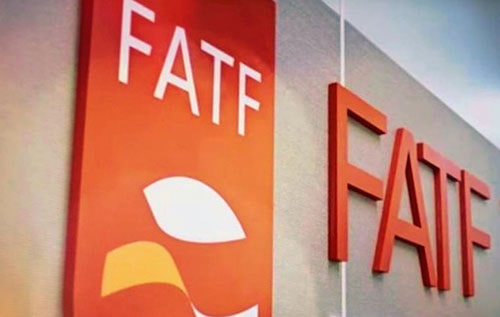FATF, short for the Financial Action Task Force, is an intergovernmental organization.
As its name suggests, the organization’s goals and objectives revolve around the development of global standards to combat the financing of terrorism and money laundering, as well as creating conditions in which such criminal activities will be impossible.
The History of the FATF
The FATF was created in 1989 through the initiative of the G7. This task force was meant to study ways of money laundering, monitor the legislative, financial, and law enforcement activities of states at both domestic and international levels, and develop standards and recommendations to combat money laundering (AML). A report that comprised 40 recommendations for effectively countering money laundering became the result of the FATF’s first year of work.
 In 2003, these recommendations were revised and updated to account for evolving models and methods of money laundering. Following the terrorist attacks of September 11, 2001, the organization expanded its scope to include the fight against terrorism financing (TF). At the same time, a list of recommendations on combating the financing of terrorism was introduced. As criminal methods continually evolve, the FATF must regularly update and expand its recommendations.
In 2003, these recommendations were revised and updated to account for evolving models and methods of money laundering. Following the terrorist attacks of September 11, 2001, the organization expanded its scope to include the fight against terrorism financing (TF). At the same time, a list of recommendations on combating the financing of terrorism was introduced. As criminal methods continually evolve, the FATF must regularly update and expand its recommendations.
At its inception, the organization comprised 16 members. As of mid-2023, FATF boasts a membership of 36 countries and includes two international organizations. In total, over 180 countries recognize and adhere to FATF recommendations and standards. Additionally, numerous international organizations with interests in financial and legal matters serve as observers within the FATF, including Interpol, the International Monetary Fund (IMF), the World Bank, and various others.
FATF Structure and Activities
The FATF Group Secretariat is based at the headquarters of the Organization for Economic Co-operation and Development (OECD) in Paris, France. As of July 1, 2022, until June 30, 2024, T. Raja Kumar, originating from Singapore, has assumed the role of Group President.
Within the framework of the FATF, several working groups operate constantly to assess and implement methods for combating money laundering in different countries, fostering international cooperation, studying existing risks in the financial sector, and more.
FATF plenary meetings take place at least three times a year.
Additionally, the FATF publishes an annual “black list”, which includes countries and territories that decline to cooperate in the fight against money laundering and terrorism financing. Inclusion on this list does not automatically result in the application of sanctions against specific countries, but it significantly influences the attitude of international investors.
 In 2003, these recommendations were revised and updated to account for evolving models and methods of money laundering. Following the terrorist attacks of September 11, 2001, the organization expanded its scope to include the fight against terrorism financing (TF). At the same time, a list of recommendations on combating the financing of terrorism was introduced. As criminal methods continually evolve, the FATF must regularly update and expand its recommendations.
In 2003, these recommendations were revised and updated to account for evolving models and methods of money laundering. Following the terrorist attacks of September 11, 2001, the organization expanded its scope to include the fight against terrorism financing (TF). At the same time, a list of recommendations on combating the financing of terrorism was introduced. As criminal methods continually evolve, the FATF must regularly update and expand its recommendations.